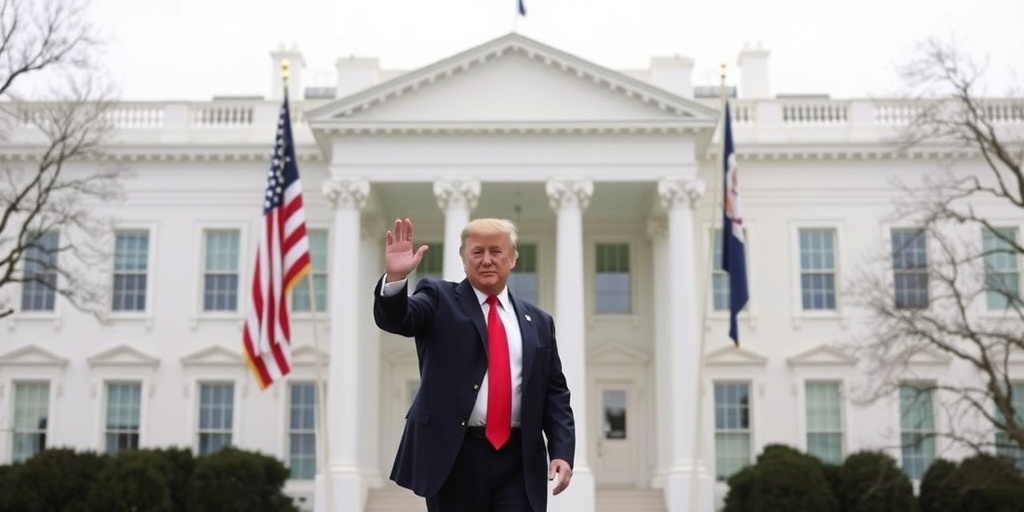Now Reading: Crackdown Bill Reveals Democratic Divisions on Immigration Amid Trump Administration
-
01
Crackdown Bill Reveals Democratic Divisions on Immigration Amid Trump Administration
Crackdown Bill Reveals Democratic Divisions on Immigration Amid Trump Administration

Title: Democrats Divided as Immigration Bill Gains Bipartisan Support in Congress
In a significant turn of events on Capitol Hill, Republicans have pushed through legislation aimed at facilitating the deportation of immigrants apprehended for minor crimes. This development was somewhat anticipated following Donald J. Trump’s election as President, during which he campaigned on a platform promising a stringent crackdown on immigration. However, what emerged as a surprising twist was the unexpected support from a notable faction of Democrats in both the House and Senate, leading to the potential enactment of the Laken Riley Act.
This legislative maneuver culminated in a pivotal test vote last Friday, where the bill cleared its last obstacle en route to passage. This moment underscored the deep divisions within the Democratic Party regarding immigration strategy as they confront the challenges posed by a resurgent Trump administration, which has made immigration its signature issue.
Historically, Democrats have consistently opposed Trump’s stringent immigration measures. However, a growing number of party members, particularly those eyeing tough re-election campaigns, appear to be adapting their approach. Their pragmatic response suggests that a position of outright rejection may not be viable in every instance, signaling a shift in strategy.
The recent developments in the House were striking, as 48 Democrats coalesced with Republicans to support the proposed Laken Riley Act. This legislation mandates the detention and potential deportation of undocumented immigrants charged with criminal offenses such as burglary and theft. Among the Democrats who publicly backed this measure was Representative Ritchie Torres from New York, whose district notably shifted in favor of Trump by 22 points during the election. Mr. Torres pointed out that the political landscape necessitates meeting constituents where they stand, even when personal ideological beliefs might diverge. He voiced concerns that opposing the bill could project an image of being disconnected from widespread public sentiment regarding immigration and border security.
Furthermore, Torres emphasized that Republicans have strategically introduced such bills to expose Democrats’ vulnerabilities on immigration. He argued that Democrats should neutralize the political advantages Republicans might gain by preemptively supporting such measures, thwarting any attempts at labeling them as defiant on immigration enforcement.
In the Senate, a similar narrative unfolded as 10 Democrats joined forces with their Republican colleagues to support the bill during a recent test vote. This coalition effectively positioned the legislation for swift passage, setting the stage for President Trump’s impending endorsement. Notably, some of the Democrats who endorsed the bill hail from states that significantly favored Trump in the recent election, indicating a calculated move to align with constituents’ sentiments on immigration issues.
Senator John Fetterman of Pennsylvania, a co-sponsor of the bill, expressed optimism about the growing bipartisan support. He acknowledged that while the legislation might not be flawless, it addresses urgent needs and aligns with public expectations on immigration policy.
The broader implications of this legislation illustrate how adept Republicans have become at leveraging immigration as a divisive issue within the Democratic Party. This tactic effectively forces Democrats into a dilemma: they can either oppose the legislation, risking public perception as being lenient on undocumented immigrants and crime, or concede, potentially compromising their values around due process and the rights of the accused.
Despite the pressure from moderate Democrats, a majority of the party has maintained firm opposition to the bill, advocating for a stance that aligns with their foundational values. Senator Christopher S. Murphy from Connecticut asserted that Democrats need not allow Republicans to dictate the parameters of the immigration debate. He underscored the importance of rethinking their communication strategy about border security and immigration, emphasizing proactive messaging rather than reactive posturing.
Meanwhile, many Democrats have expressed frustration over their colleagues’ willingness to compromise core principles for political expediency. Representative Ro Khanna of California criticized the strategic pivot, asserting that Democrats should uphold their values by promoting a balanced approach to immigration that includes border security measures while also ensuring fairness and justice for immigrants.
As the political landscape continues to evolve, the immigration debate remains a crucial topic for both parties. The outcome of this legislation will likely have far-reaching consequences not only for immigrants but also for the future unity and strategy of the Democratic Party as it navigates the complex terrain of American politics under a Trump-led administration.
Stay Informed With the Latest & Most Important News
Previous Post
Next Post
-
 01New technology breakthrough has everyone talking right now
01New technology breakthrough has everyone talking right now -
 02Unbelievable life hack everyone needs to try today
02Unbelievable life hack everyone needs to try today -
 03Fascinating discovery found buried deep beneath the ocean
03Fascinating discovery found buried deep beneath the ocean -
 04Man invents genius device that solves everyday problems
04Man invents genius device that solves everyday problems -
 05Shocking discovery that changes what we know forever
05Shocking discovery that changes what we know forever -
 06Internet goes wild over celebrity’s unexpected fashion choice
06Internet goes wild over celebrity’s unexpected fashion choice -
 07Rare animal sighting stuns scientists and wildlife lovers
07Rare animal sighting stuns scientists and wildlife lovers




















